-
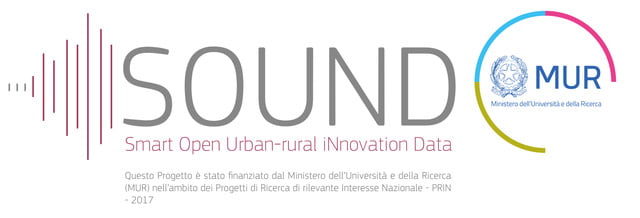
-
Period 2020-2024
-
Coordinator Carmelina Bevilacqua - Università degli Studi Mediterranea di Reggio Calabria - Dipartimento PAU
-
Fund MIUR PRIN - Progetti di Ricerca di rilevante Interesse Nazionale
-
Topics Territorial Knowledge Dynamics Innovation flows; Cluster spatialization; Entrepreneurship; Urban Data; Living Lab
-
Amount € 1.081.726
SOUND - Smart Open Urban-rural Innovation Data
The SOUND Project is characterized by a multidisciplinary approach to capture and exploit knowledge and innovation flows at the internal-regional level by combining urban-regional science with research-innovation dynamics.
The aim is to highlight the different patterns of knowledge distribution inside a regional context by investigating the forces that design the regional geography of innovation flows.
Nodes of innovation flows are physical parts of regional territory. Introducing urban regeneration mechanism in enhancing the business environment can help in fostering cluster initiatives for knowledge convergence in a local entrepreneurial discovery process.
The integration of all these aspects is handled by a smart platform in which open innovation model can find an operative configuration. Through a strictly connection between urban regeneration and knowledge dynamics, the project intends to combine urban and innovation policy towards the post-Europe 2020 Strategy, as scientific advance in urban and regional studies within innovation policy design.
Focus
The SOUND Project is funded by the National PRIN Program 2017 (Progetti di Ricerca di rilevante Interesse Nazionale – Italian Minister of University Research and education – MIUR)
The SOUND project reflects the progressive attention given to Smart Specialization Strategies (S3) in boosting the implementation of Europe 2020 strategy, at regional and local level.
S3 has been designed to capture knowledge and innovation dynamics closely connected with characteristics of context. The key concepts of S3 lain in the mutual correlation among entrepreneur, innovation and economic development.
SOUND focuses on the territorialvchallenges represented by the strategies of inland areas, rural areas and urban agenda in Italy. These territorial challenges enlighten the territorial dimension of the 2014-2020 programming period in contextualising local needs according to precise strategic lines of action. S3 strengthen urban systems towards developing innovation platforms interconnected with physical and informational network systems for the diffusion of innovation, aimed at making territorial systems competitive.
Research
The aim of SOUND is to figure out how the connection of urban/territorial dimension with place-based innovation approach allows at reaching the knowledge convergence to activate informational spillovers.
The methodology is based on the use of smart platform to combine innovation with territorial capital through the ICT support that can play a significant role in both activating overarching strategic plans developed at smart city governance level, and realizing community-institution relationships regarding Open Innovation approaches.
The Living Lab concept, based on Open Innovation Model, is conceived as “smart interface” among enterprises, researchers, citizens and public authorities in order to respond the increasing service demand, to stimulate creativity, new markets and the use of KETs.
It undergirds fields such as big-data analytics and data visualization connected with GIS operative tool to individuate in pilot contexts concept areas and intensity of innovation flows. A dynamic mapping of areas with higher potential of development of city/hubs, which take the form of innovation power zones (IPZ) underpins the expected impact of the Living Lab, the main challenge is to manage the IPZs as potential Special Economic Zones
Implementation
The research activities are structured into 4 phases. The phases have the objective to correlate the theoretical approach stemming from the evolutionary economy with the necessity to give a practical explanation of resilience and transition in terms of indicators and metrics.
Developing a methodology of analysis and assessment of success factors and Performance indicators of Clusters selected in the MAPS-LED project to contextualize them in the territorial matrix of the urban agenda, inland areas and metropolitan cities in the three southern Italian regions, Calabria, Sicily Campania.
Setting up an analytical process to understand how Cluster performance factors can be combined with the characteristics of the context by highlighting the spatial implications in knowledge dynamics
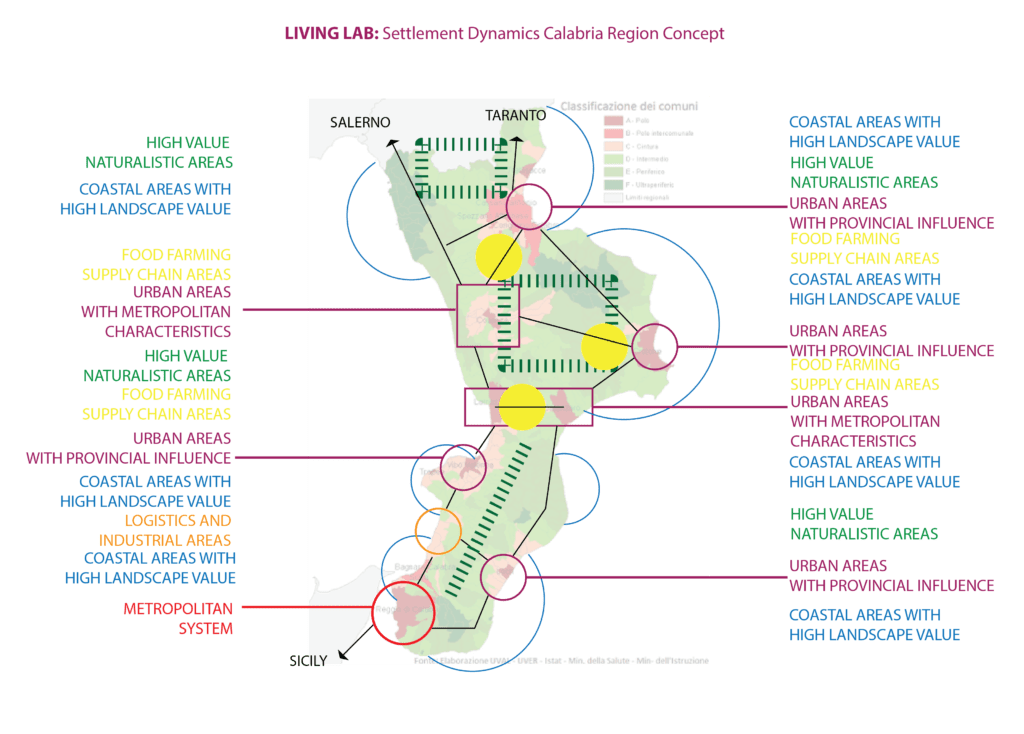
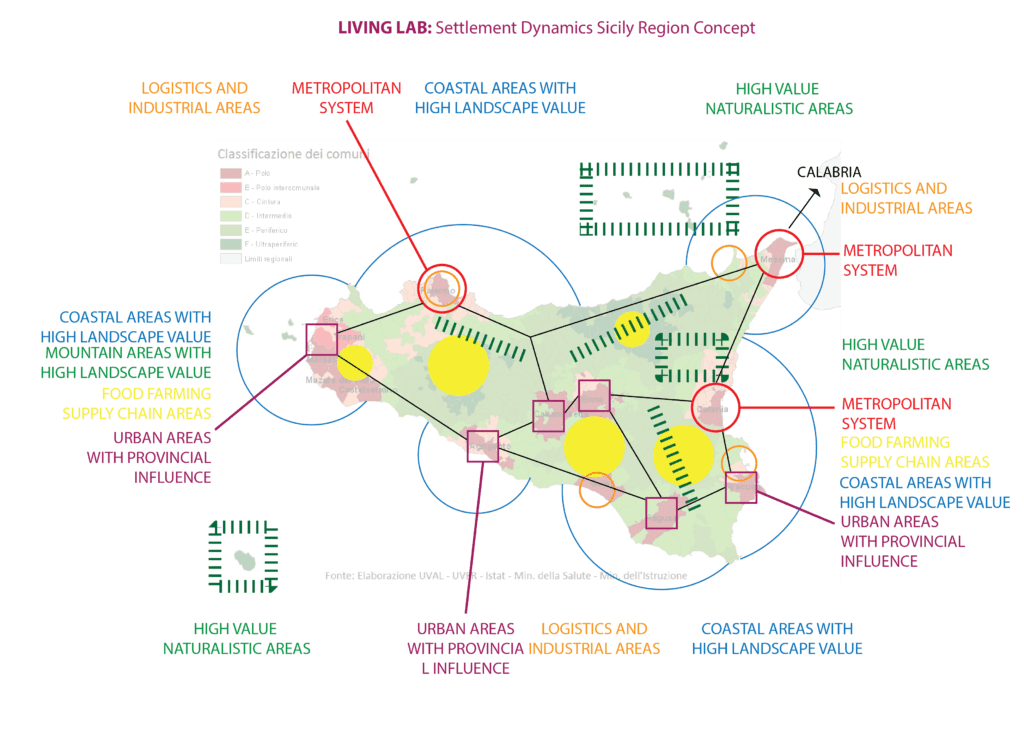
Developing the methodological application o knowledge-based theory to analyse the components structuring innovation flows. Applying a spatially-led approach to combine the innovation flows with concept area maps of Calabria, Sicily and Campania, in order to identify the innovation power zones within the three cities.
Setting up an analytical process to understand how the territorial milieu can reinforce local entrepreneurial discovery processes in less developed regions by highlighting the role of the city in the knowledge convergence for S3 implementation.
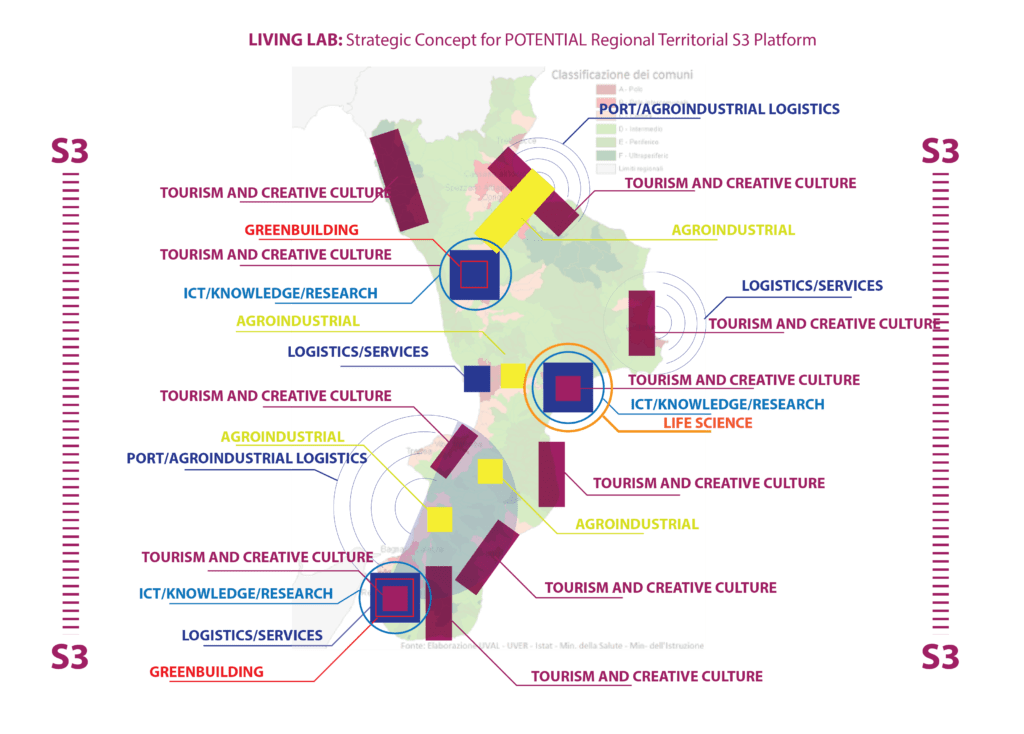
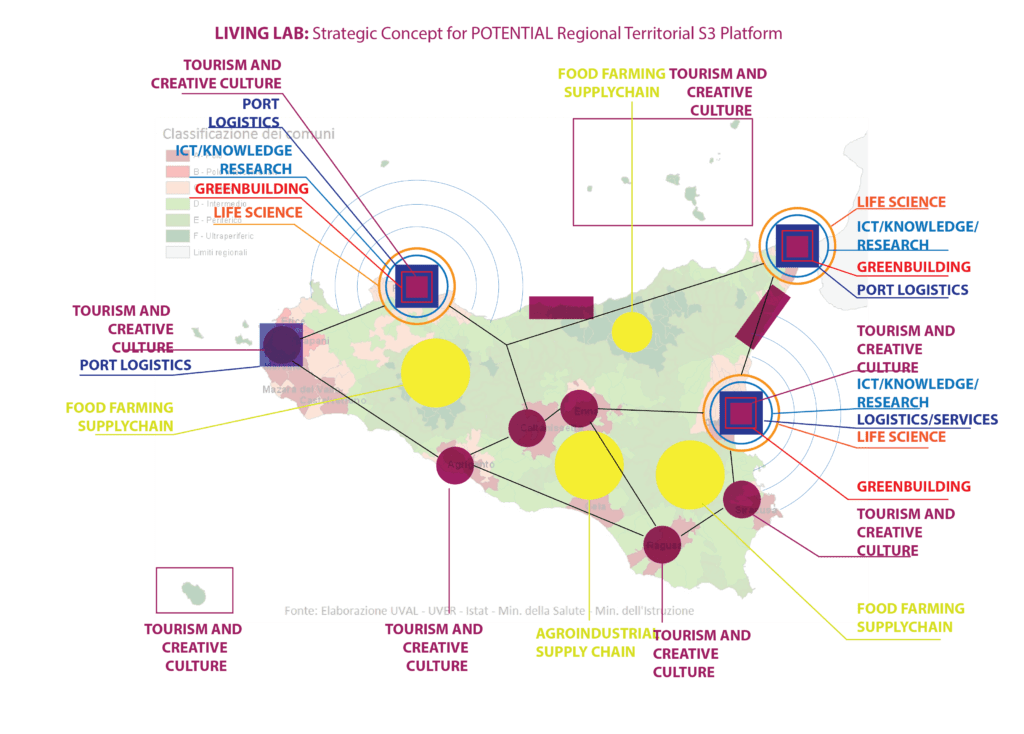
The team supposed to develop the SOUND project will manage the living lab as smart platform to encourage the implementation of RIS3 according with open innovation.
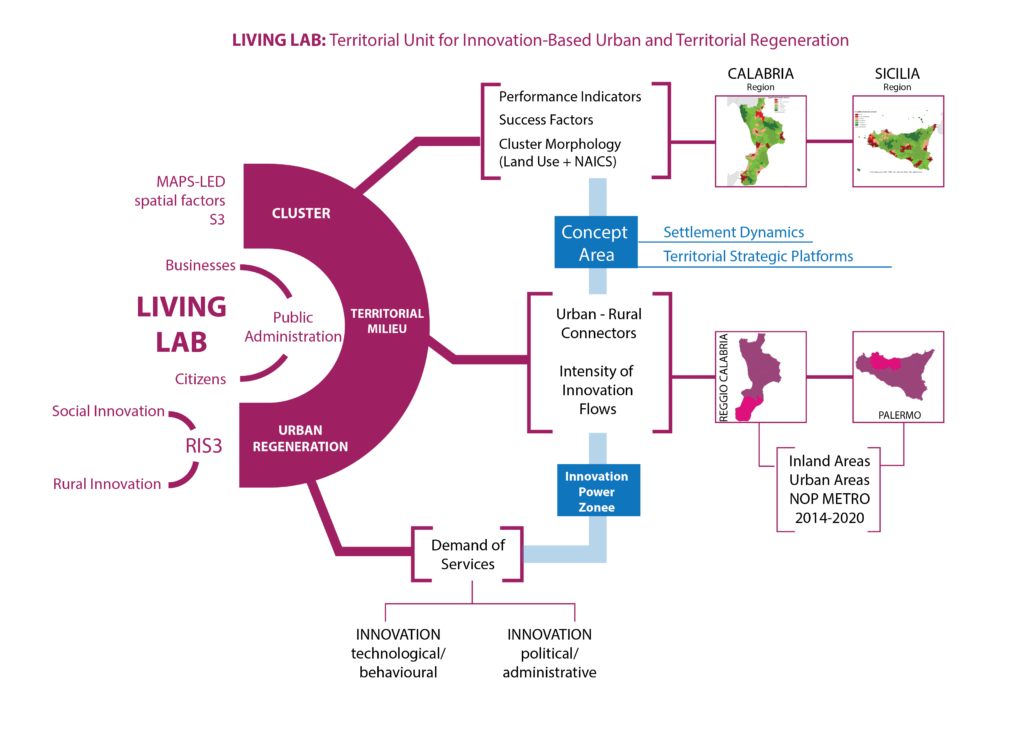
Setting up an analytical process to understand how the policy mix and the business environment can be locally designed through regeneration initiatives.
The team supposed to develop the SOUND project will manage the living lab as smart platform to encourage the implementation of RIS3 according with open innovation.
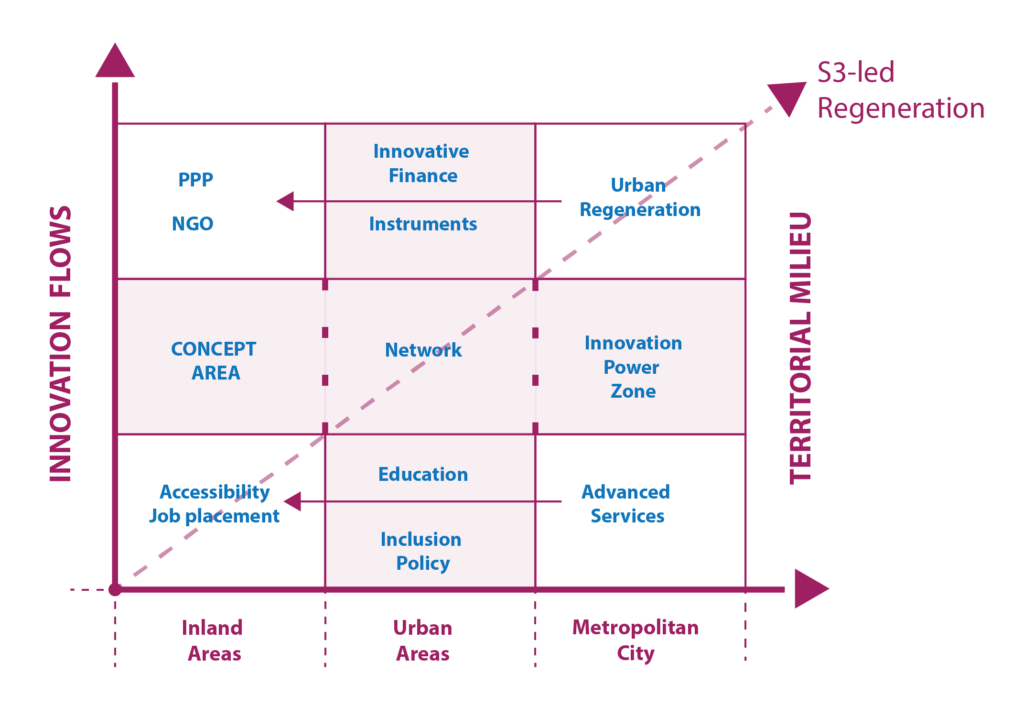
Setting up a logical framework to build a smart platform for fostering entrepreneurship and open innovation in university-business collaboration towards a combination
Defining and implementing a dissemination, communication and management strategy for the duration of the project.
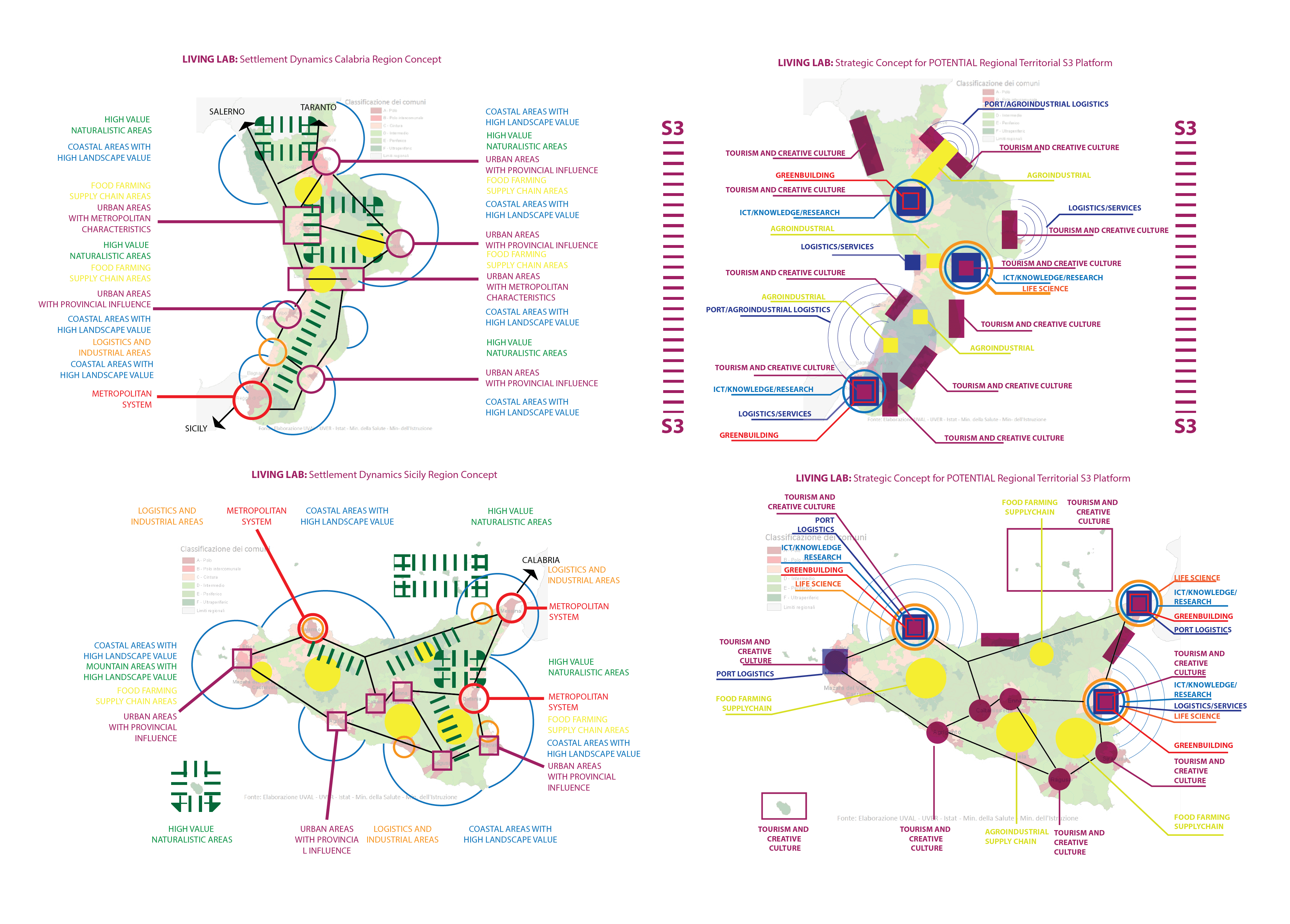
Setting-up a sustainable strategy to exploit the smart platform towards steady state operations for the ongoing delivery of services. In particular, the main goal is to demonstrate how the Living Lab becomes crucial in lagging regions where the weakness of networks and the lack of services make difficult a successful cluster policy to be put forward.
Territorial Knowledge Dynamics
Lorem ipsum dolor sit amet, consectetur adipiscing elit. Ut elit tellus, luctus nec ullamcorper mattis, pulvinar dapibus leo.
Impact
Arnone M., Provenzano V. (2021). LO SVILUPPO DELLA FINANZA DI IMPATTO SOCIALE E IL COVID-19. AISRe -Associazione Italiana di Scienze Regionali XLII Conferenza Scientifica Annuale -Territorial challenges in the post-covid era. In collaborazione con Joint Research Centre della Commissione Europea
Bevilacqua C. (2021). DEISTITUTIONALIZATION AND COMMUNITY-BASED URBAN REGENERATION. AISRe -Associazione Italiana di Scienze Regionali XLII Conferenza Scientifica Annuale -Territorial challenges in the post-covid era. In collaborazione con Joint Research Centre della Commissione Europea
Castellano M. (2021), LA SFIDA DEL COVID-19. NUOVI SCENARI DELL’ECONOMIA SOCIALE IN ITALIA E NEL MEZZOGIORNO. AISRe -Associazione Italiana di Scienze Regionali XLII Conferenza Scientifica Annuale -Territorial challenges in the post-covid era. In collaborazione con Joint Research Centre della Commissione Europea
Grimaldi M., Sebillo M., Battistoni P., Vitello G. (2021). LIVING LABS AND OPEN INNOVATION TO SUPPORT LOCAL DEVELOPMENT POLICIES. ASITA Academy 2021, on-line conference
Grimaldi M., Battistoni P., Sebillo M. (2021),LA COSTRUZIONE DI UNO SPATIAL DECISION SUPPORT SYSTEM A SUPPORTO DI POLITICHE PLACE-SENSITIVE DI RIGENERAZIONE TERRITORIALE. AISRe -Associazione Italiana di Scienze Regionali XLII Conferenza Scientifica Annuale -Territorial challenges in the post-covid era. In collaborazione con Joint Research Centre della Commissione Europea
Provenzano V., Trapani F., Seminara M. R. (2021). LIVING LABS FOR A DEMOCRATIC OPEN PLATFORM. AISRe -Associazione Italiana di Scienze Regionali XLII Conferenza Scientifica Annuale -Territorial challenges in the post-covid era. In collaborazione con Joint Research Centre della Commissione Europea
Sica G. (2021), AZIONI DI ENGAGEMENT DAL BASSO, IL RUOLO DELLA RICERCA NELLA COSTRUZIONE DEI PROCESSI DI COMUNITÀ: IL CASO OFFICINA KELLER. AISRe -Associazione Italiana di Scienze Regionali – XLII Conferenza Scientifica Annuale, Territorial challenges in the post-covid era. In collaborazione con Joint Research Centre della Commissione Europea
People
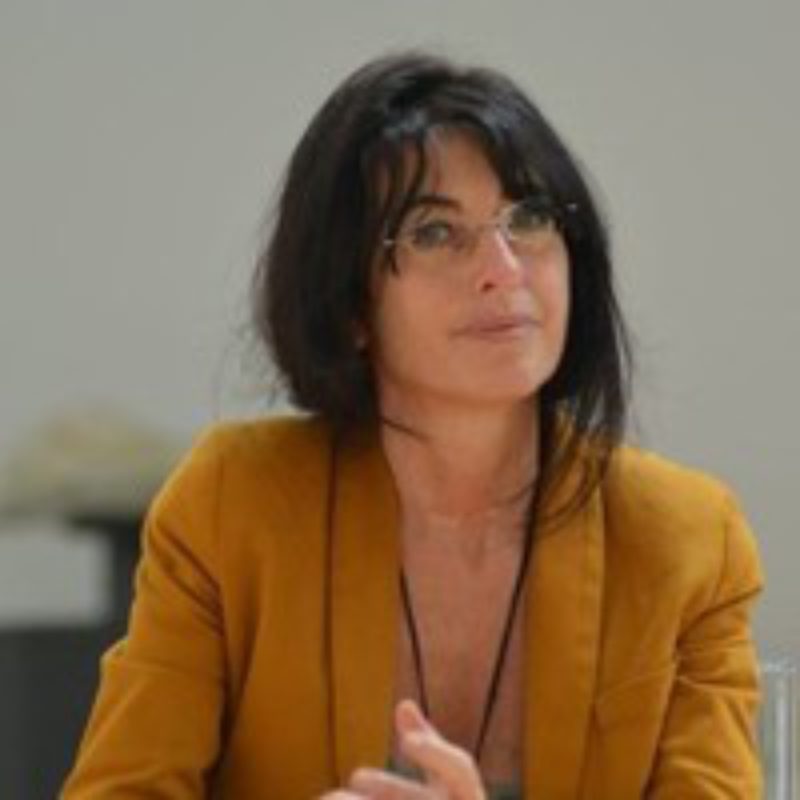
Carmelina Bevilacqua
Project CoordinatorAssociate Professor - PDTA Department Università degli Studi Roma LaSapienza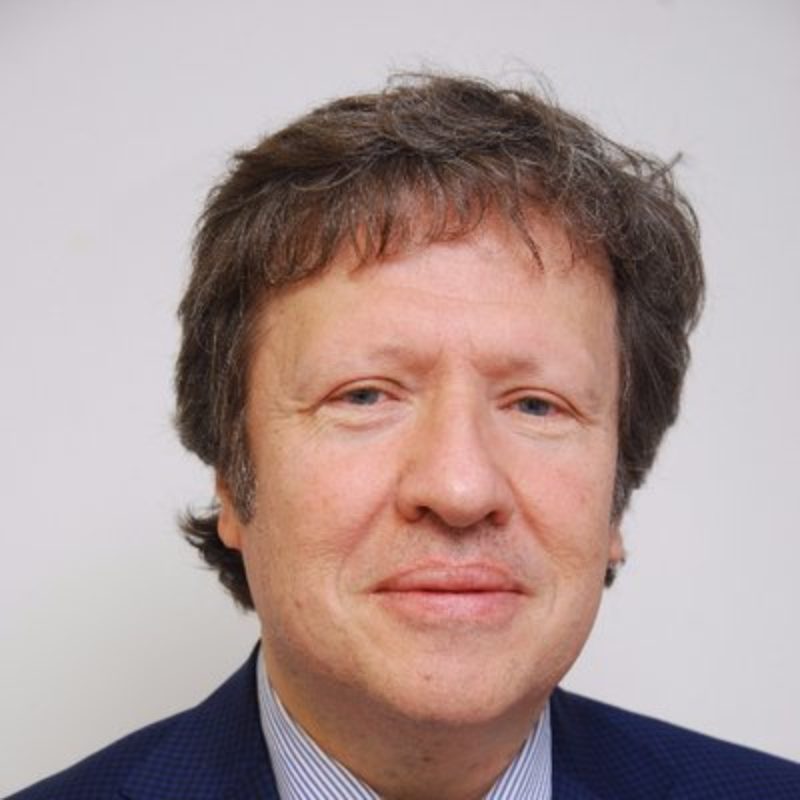
Vincenzo PROVENZANO
Project Unit CoordiantorAssociate Professor - Dipartimento Scienze Economiche, Aziendali e Statistiche Università degli Studi di Palermo, Italy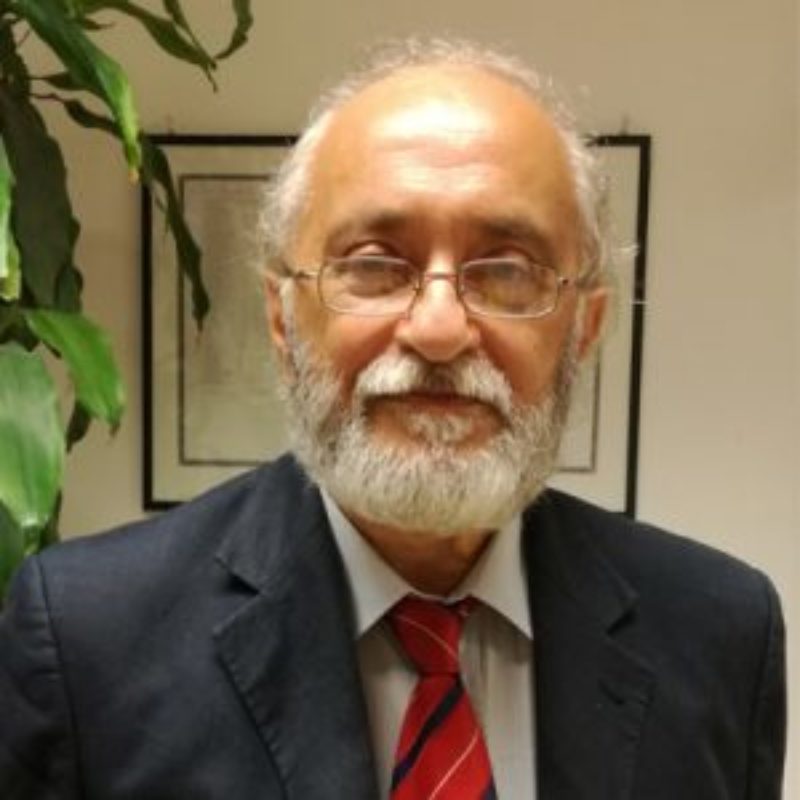
Guglielmo Trupiano
Project Unit CoordinatorLUPT- Center of study on development policies and spatial planning Università degli Studi di Napoli Federico II Napoli, IT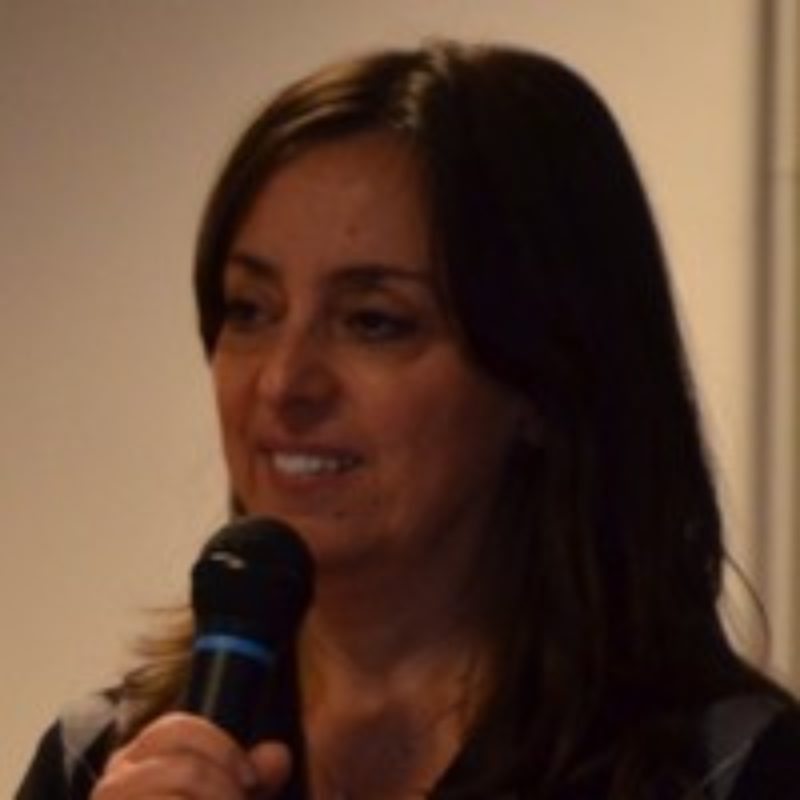
Monica Sebillo
Project unit coordinatorDepartment of Computer Science Università degli Studi di SALERNO Salerno, IT
Partners

Università Degli Studi Mediterranea
Dipartimento Patrimonio Architettura Urbanistica Reggio Calabria, Italia

Università Di Palermo
Dipartimento Scienze Economiche, Aziendali e Statistiche Palermo, Italia

Università di Napoli Federico II
LUPT-Center of study on Development Policies and Spatial Planning
Napoli

Dipartimento di Informatica
Salerno - UNISA
